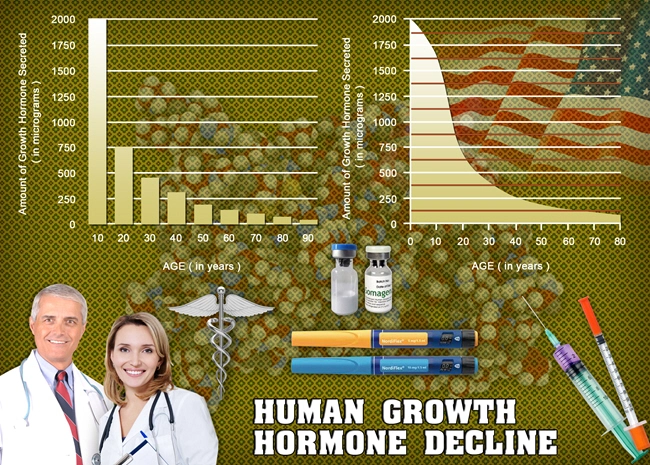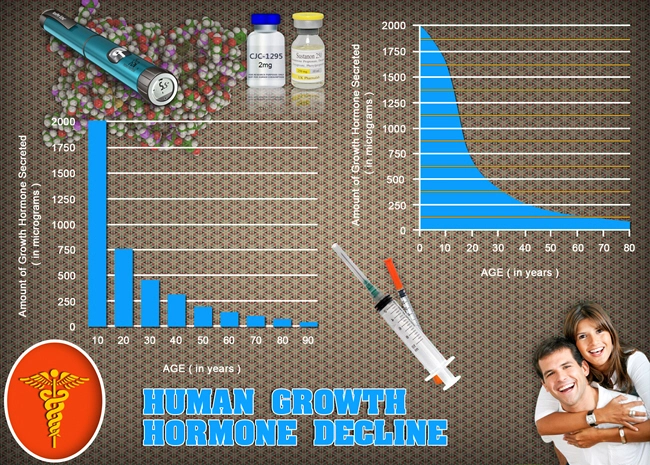
Introduction to Sexual Arousal
Sexual arousal is a complex physiological process that involves the brain, hormones, nerves, muscles, and blood vessels. For American men, understanding this process is crucial, especially when facing challenges such as soft erections, medically known as erectile dysfunction (ED). This article delves into the science behind sexual arousal and explores what can go wrong, leading to difficulties in achieving or maintaining an erection.
The Physiology of Erections
An erection begins with sexual stimulation, which can be physical or psychological. This stimulation triggers the release of nitric oxide in the penis. Nitric oxide causes the blood vessels in the penis to dilate, allowing more blood to flow into the corpora cavernosa, the two sponge-like regions of erectile tissue. As these chambers fill with blood, the penis becomes rigid. The ischiocavernosus and bulbospongiosus muscles at the base of the penis then compress the veins, trapping the blood and maintaining the erection.
Common Causes of Soft Erections
Several factors can disrupt this delicate process, leading to soft erections. One of the primary causes is vascular disease, which can impair blood flow to the penis. Conditions such as atherosclerosis, where plaque buildup narrows the arteries, can reduce the blood supply needed for an erection. Similarly, hypertension and diabetes can damage blood vessels and nerves, further complicating the process.
Neurological Factors
The nervous system plays a pivotal role in sexual arousal. Damage to nerves, often due to conditions like multiple sclerosis or as a side effect of prostate surgery, can interrupt the signals required for an erection. Psychological factors, such as stress, anxiety, and depression, can also hinder the brain's ability to initiate and sustain an erection, highlighting the intricate connection between mental and physical health.
Hormonal Imbalances
Testosterone, the primary male sex hormone, is essential for sexual function. Low levels of testosterone can lead to reduced libido and difficulty achieving erections. Aging, obesity, and certain medical conditions can contribute to hormonal imbalances, necessitating a thorough evaluation to address these underlying issues.
Lifestyle and Environmental Influences
Lifestyle choices significantly impact sexual health. Smoking, excessive alcohol consumption, and drug use can damage blood vessels and nerves, contributing to ED. A sedentary lifestyle and poor diet can lead to obesity and related health issues, further exacerbating the problem. Environmental factors, such as exposure to toxins, can also play a role in disrupting sexual function.
Medical Interventions and Treatments
Fortunately, numerous treatments are available for men experiencing soft erections. Medications like phosphodiesterase type 5 (PDE5) inhibitors, such as sildenafil (Viagra), tadalafil (Cialis), and vardenafil (Levitra), enhance the effects of nitric oxide, improving blood flow to the penis. For those who do not respond to oral medications, other options include penile injections, vacuum erection devices, and surgical implants.
Psychological and Holistic Approaches
Addressing the psychological aspects of ED is equally important. Counseling and therapy can help men cope with stress, anxiety, and relationship issues that may contribute to soft erections. Additionally, adopting a healthier lifestyle, including regular exercise, a balanced diet, and cessation of smoking and excessive drinking, can improve overall sexual health.
Conclusion: A Multifaceted Approach to Sexual Health
Understanding the science of sexual arousal and the factors that can lead to soft erections is essential for American men seeking to maintain their sexual health. By addressing both the physical and psychological components of ED, men can take proactive steps toward improving their quality of life. Consulting with healthcare professionals to explore the most suitable treatment options is a critical first step in overcoming the challenges of soft erections and enhancing sexual well-being.
Contact Us Today For A Free Consultation
Dear Patient,
Once you have completing the above contact form, for security purposes and confirmation, please confirm your information by calling us.
Please call now: 1-800-380-5339.
Welcoming You To Our Clinic, Professor Tom Henderson.

- Decoding the Enigma of Soft Erections: A Comprehensive Exploration [Last Updated On: February 25th, 2025] [Originally Added On: February 25th, 2025]
- Unveiling the Complexities behind Reduced Virility: A Journey into the Science of Soft Erections [Last Updated On: February 26th, 2025] [Originally Added On: February 26th, 2025]
- Broadening the Masculine Spectrum: Navigating Soft Erections Confidently [Last Updated On: February 27th, 2025] [Originally Added On: February 27th, 2025]
- Transforming Sexual Health: Enhancing Male Virility through Holistic Lifestyle Adjustments [Last Updated On: February 28th, 2025] [Originally Added On: February 28th, 2025]
- Unheard Voices: Understanding and Navigating Soft Erections [Last Updated On: February 28th, 2025] [Originally Added On: February 28th, 2025]
- Understanding the Nexus: Psychological Stress and Its Impact on Erection Function [Last Updated On: March 1st, 2025] [Originally Added On: March 1st, 2025]
- Demystifying Men's Health: Understanding Erectile Resilience and its Multifaceted Dimensions [Last Updated On: March 2nd, 2025] [Originally Added On: March 2nd, 2025]
- Enhancing Erectile Function Through Exercise: Understanding the Role of Physical Activity in Improving Sexual Health and Erection Quality [Last Updated On: March 3rd, 2025] [Originally Added On: March 3rd, 2025]
- Nutrition's Role in Enhancing Male Erectile Function and Health [Last Updated On: March 4th, 2025] [Originally Added On: March 4th, 2025]
- Soft Erections in Aging Men: Causes, Diagnosis, and Effective Management Strategies [Last Updated On: March 5th, 2025] [Originally Added On: March 5th, 2025]
- Exploring the Link Between Sleep Quality and Erectile Function in Men [Last Updated On: March 5th, 2025] [Originally Added On: March 5th, 2025]
- Managing Mild Erectile Dysfunction: Strategies for Enhancing Intimacy and Well-being [Last Updated On: March 6th, 2025] [Originally Added On: March 6th, 2025]
- Enhancing Male Sexual Health: The Role of Weight Loss in Combating Soft Erections [Last Updated On: March 6th, 2025] [Originally Added On: March 6th, 2025]
- Optimizing Male Hormones for Sexual Health: Balancing Testosterone and Estrogen Dynamics [Last Updated On: March 7th, 2025] [Originally Added On: March 7th, 2025]
- The Vascular Link: Understanding Blood Flow in Erectile Dysfunction and Vascular Health [Last Updated On: March 8th, 2025] [Originally Added On: March 8th, 2025]
- The Intersection of Cardiovascular Health and Erectile Function: Lifestyle Strategies for Men's Health [Last Updated On: March 9th, 2025] [Originally Added On: March 9th, 2025]
- Enhancing Male Sexual Health: The Role of Meditation and Mindfulness in Combating Soft Erections [Last Updated On: March 9th, 2025] [Originally Added On: March 9th, 2025]
- Debunking Myths: The Truth About Soft Erections in American Men [Last Updated On: March 14th, 2025] [Originally Added On: March 12th, 2025]
- Navigating the Impact of Medications on Male Sexual Health: Understanding Drug-Induced Erectile Challenges [Last Updated On: March 13th, 2025] [Originally Added On: March 13th, 2025]
- Mastering Stress: Strategies to Enhance Male Sexual Performance and Combat Soft Erections [Last Updated On: March 15th, 2025] [Originally Added On: March 15th, 2025]
- Smoking's Impact on Erectile Health: Understanding and Overcoming Soft Erections [Last Updated On: March 17th, 2025] [Originally Added On: March 17th, 2025]
- Diagnosing Soft Erections: Comprehensive Approaches for American Males' Urological Health [Last Updated On: March 18th, 2025] [Originally Added On: March 18th, 2025]
- Pelvic Floor Exercises: Enhancing Men's Sexual Health and Overall Wellness [Last Updated On: March 18th, 2025] [Originally Added On: March 18th, 2025]
- Alcohol's Impact on Erection Quality: Insights and Management Strategies [Last Updated On: March 18th, 2025] [Originally Added On: March 18th, 2025]
- Soft Erections in Young Men: Causes, Impacts, and Holistic Management Strategies [Last Updated On: March 18th, 2025] [Originally Added On: March 18th, 2025]
- Vitamins and Minerals: Enhancing Erection Quality in American Men Naturally [Last Updated On: March 19th, 2025] [Originally Added On: March 19th, 2025]
- Herbal Remedies for Enhancing Erectile Health in American Males [Last Updated On: March 19th, 2025] [Originally Added On: March 19th, 2025]
- Understanding and Managing Soft Erections: Causes, Diagnosis, and Treatment Options [Last Updated On: March 20th, 2025] [Originally Added On: March 20th, 2025]
- Counseling's Role in Treating Soft Erections: A Holistic Approach [Last Updated On: March 20th, 2025] [Originally Added On: March 20th, 2025]
- Soft Erections: Understanding, Communicating, and Overcoming ED Together [Last Updated On: March 21st, 2025] [Originally Added On: March 21st, 2025]
- Soft Erections and Mental Health: Strategies for American Men [Last Updated On: March 21st, 2025] [Originally Added On: March 21st, 2025]
- Work Stress Impact on American Males' Sexual Health: Strategies and Solutions [Last Updated On: March 21st, 2025] [Originally Added On: March 21st, 2025]
- Managing Soft Erections: Diet, Exercise, Stress, Sleep, and Medical Care [Last Updated On: March 22nd, 2025] [Originally Added On: March 22nd, 2025]
- Understanding Soft Erections: Causes, Impacts, and Holistic Treatment Options for American Males [Last Updated On: March 23rd, 2025] [Originally Added On: March 23rd, 2025]
- Genetic Factors in Erectile Dysfunction: Understanding Soft Erections in American Men [Last Updated On: March 23rd, 2025] [Originally Added On: March 23rd, 2025]
- Nitric Oxide's Role in Erections: Understanding and Enhancing Function [Last Updated On: March 23rd, 2025] [Originally Added On: March 23rd, 2025]
- Managing Soft Erections: Behavioral Strategies for Improved Sexual Health [Last Updated On: March 23rd, 2025] [Originally Added On: March 23rd, 2025]
- Exploring Alternative Medicine for Enhanced Erectile Health in American Males [Last Updated On: March 23rd, 2025] [Originally Added On: March 23rd, 2025]
- Overcoming Soft Erections: Success Stories and Strategies for American Men [Last Updated On: March 23rd, 2025] [Originally Added On: March 23rd, 2025]
- Redefining Sexual Success: Embracing Vulnerability and Holistic Health for Confidence [Last Updated On: March 23rd, 2025] [Originally Added On: March 23rd, 2025]
- Soft Erections vs. Erectile Dysfunction: Understanding Differences and Solutions for Men [Last Updated On: March 24th, 2025] [Originally Added On: March 24th, 2025]
- Physical Therapy's Role in Treating Soft Erections Among American Males [Last Updated On: March 24th, 2025] [Originally Added On: March 24th, 2025]
- PDE5 Inhibitors: Revolutionizing ED Treatment for American Males [Last Updated On: March 24th, 2025] [Originally Added On: March 24th, 2025]
- Innovative Technologies and Therapies for Treating Soft Erections in American Males [Last Updated On: March 24th, 2025] [Originally Added On: March 24th, 2025]
- Obesity and Soft Erections: Enhancing Sexual Health Through Weight Management [Last Updated On: March 24th, 2025] [Originally Added On: March 24th, 2025]
- Exploring Alternative Therapies for Erectile Dysfunction: A Holistic Approach [Last Updated On: March 24th, 2025] [Originally Added On: March 24th, 2025]
- Biofeedback Therapy: Enhancing Erectile Control in American Males with Soft Erections [Last Updated On: March 25th, 2025] [Originally Added On: March 25th, 2025]
- Economic Impact of Soft Erections on American Men's Quality of Life and Finances [Last Updated On: March 25th, 2025] [Originally Added On: March 25th, 2025]
- Heart Health and Erections: Understanding the Cardiovascular Connection [Last Updated On: March 25th, 2025] [Originally Added On: March 25th, 2025]
- Prostate Health's Impact on Soft Erections: Insights and Management for American Men [Last Updated On: March 25th, 2025] [Originally Added On: March 25th, 2025]
- Managing Soft Erections: Preparing for Doctor Visits and Understanding Treatment Options [Last Updated On: March 25th, 2025] [Originally Added On: March 25th, 2025]
- Chronic Inflammation's Impact on Sexual Health: Mechanisms and Management Strategies [Last Updated On: March 25th, 2025] [Originally Added On: March 25th, 2025]
- Understanding and Treating Soft Erections: Causes, Diagnosis, and Options for American Males [Last Updated On: March 26th, 2025] [Originally Added On: March 26th, 2025]
- Sleep Disorders and Soft Erections: Impacts and Management Strategies for Men [Last Updated On: March 26th, 2025] [Originally Added On: March 26th, 2025]
- Soft Erections and Metabolic Syndrome: A Critical Link in American Males [Last Updated On: March 26th, 2025] [Originally Added On: March 26th, 2025]
- Understanding and Overcoming Soft Erections: Impact, Intimacy, and Solutions [Last Updated On: March 26th, 2025] [Originally Added On: March 26th, 2025]
- Digital Health Solutions Transforming Erectile Health Management for American Men [Last Updated On: March 26th, 2025] [Originally Added On: March 26th, 2025]
- Stress Management Techniques to Improve Erectile Function in American Males [Last Updated On: March 26th, 2025] [Originally Added On: March 26th, 2025]
- Cardiovascular Exercise Enhances Erection Quality in American Males [Last Updated On: March 26th, 2025] [Originally Added On: March 26th, 2025]
- Environmental Toxins and Their Impact on Male Erectile Health in America [Last Updated On: March 26th, 2025] [Originally Added On: March 26th, 2025]
- Hormonal Health and Erections: A Comprehensive Guide for American Men [Last Updated On: March 27th, 2025] [Originally Added On: March 27th, 2025]
- Medication Side Effects and Soft Erections: Causes, Management, and Solutions [Last Updated On: March 27th, 2025] [Originally Added On: March 27th, 2025]
- Innovative Solutions for Erection Challenges: Vacuum Pumps and Beyond [Last Updated On: March 27th, 2025] [Originally Added On: March 27th, 2025]
- Understanding Soft Erections: Causes, Treatments, and Breaking Stigmas [Last Updated On: March 28th, 2025] [Originally Added On: March 28th, 2025]
- Superfoods Boost Vascular Health, Enhancing Erectile Function in American Males [Last Updated On: March 28th, 2025] [Originally Added On: March 28th, 2025]
- Managing Soft Erections: A Mindfulness Approach for American Men [Last Updated On: March 28th, 2025] [Originally Added On: March 28th, 2025]
- Overcoming Soft Erections: Psychological Strategies and Self-Esteem Enhancement [Last Updated On: March 29th, 2025] [Originally Added On: March 29th, 2025]
- Enhancing Sexual Stamina and Managing Soft Erections: Techniques and Strategies [Last Updated On: March 29th, 2025] [Originally Added On: March 29th, 2025]
- Sedentary Lifestyles and Erection Quality: Benefits of Physical Activity for American Males [Last Updated On: March 30th, 2025] [Originally Added On: March 30th, 2025]
- Nerve Health's Crucial Role in Enhancing Erectile Function for American Males [Last Updated On: March 30th, 2025] [Originally Added On: March 30th, 2025]
- Redefining Masculinity: Embracing Soft Erections and Enhancing Sexual Confidence [Last Updated On: March 30th, 2025] [Originally Added On: March 30th, 2025]
- Innovative Research and Future Prospects in Treating Soft Erections [Last Updated On: April 2nd, 2025] [Originally Added On: April 2nd, 2025]
- Lifestyle Changes to Enhance Erection Quality and Combat Erectile Dysfunction [Last Updated On: April 4th, 2025] [Originally Added On: April 4th, 2025]
- Soft Erections: Understanding Impact and Navigating Intimacy in American Relationships [Last Updated On: April 4th, 2025] [Originally Added On: April 4th, 2025]
- Vascular Health's Crucial Role in Enhancing Erection Quality for American Males [Last Updated On: April 6th, 2025] [Originally Added On: April 6th, 2025]
- Soft Erections: Impact on Mental Health, Relationships, and Quality of Life in American Men [Last Updated On: April 6th, 2025] [Originally Added On: April 6th, 2025]
- Cortisol's Impact on Erectile Performance in American Males: Causes and Management [Last Updated On: April 7th, 2025] [Originally Added On: April 7th, 2025]
- Breaking Silence on Soft Erections: Fostering Open Dialogue for Healthier Relationships [Last Updated On: April 7th, 2025] [Originally Added On: April 7th, 2025]
- Psychotherapy's Role in Treating Emotional Effects of Soft Erections in American Males [Last Updated On: April 9th, 2025] [Originally Added On: April 9th, 2025]
- Natural Aphrodisiacs: Exploring Their Impact on Male Sexual Health and Erections [Last Updated On: April 9th, 2025] [Originally Added On: April 9th, 2025]









